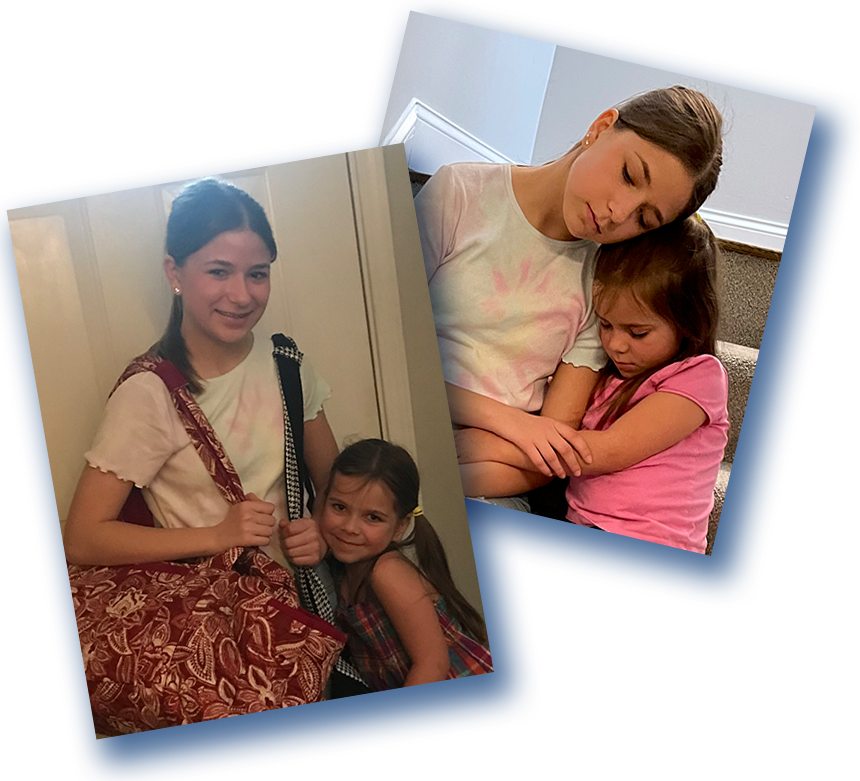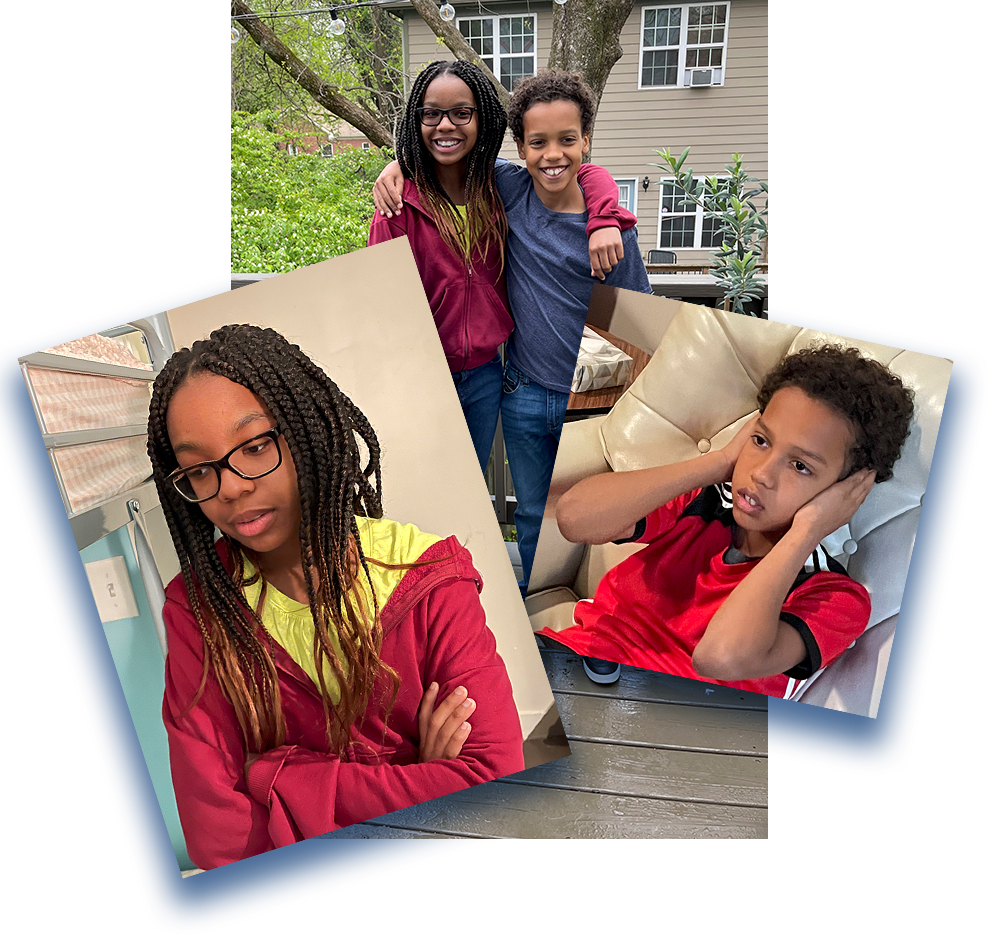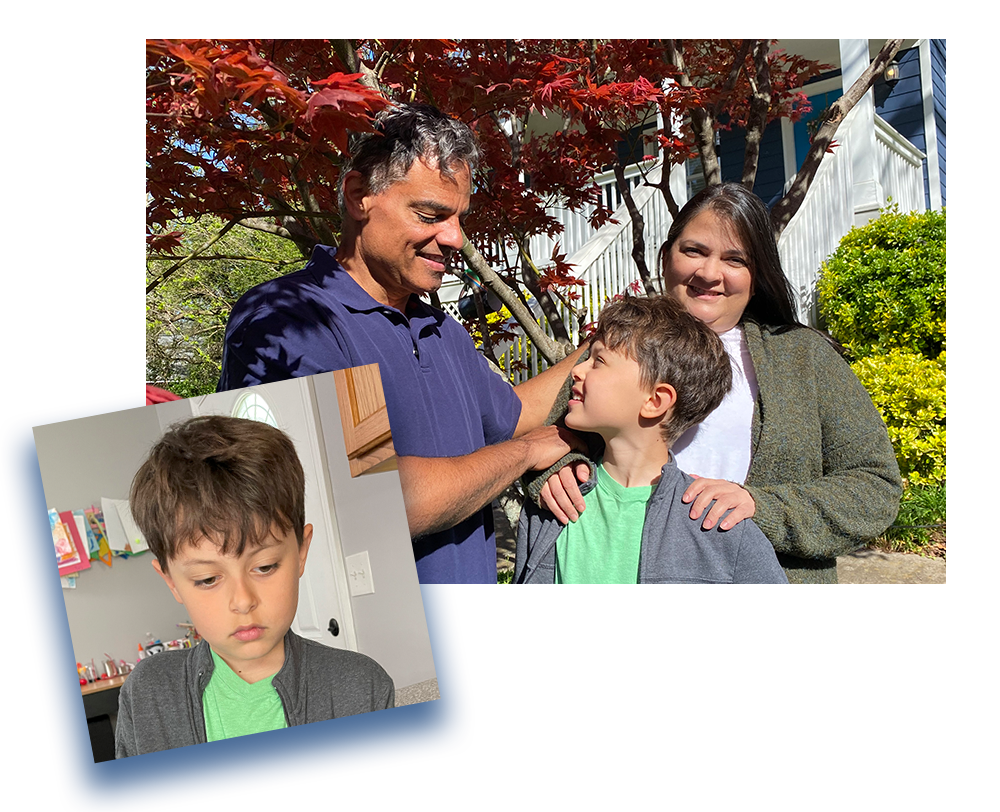A hallmark of Active Parenting programs is the use of video vignettes to illustrate common parenting problems—and solutions. Your Cooperative Coparenting through Separation or Divorce program kit contains 35 minutes of video. As parents watch the videos, they will recognize themselves in these realistic video scenes and scenarios, and this will help them to identify and meet the challenges they are facing in their own families.
The children portrayed in the video are:
Rachel (5) and Sarah (14)

Tiffany (12) and Marcus (10)

Coparents Jackie and Robert are having trouble letting go of their resentment of one another and that makes it difficult to focus on their daughters, Rachel and Sarah. Jackie fuels the fire with sarcasm and withholding the girls at pickup, and Robert reacts with defensiveness and threats sending the two coparents into spiraling conflict.
Jackie and Robert’s youngest daughter, Rachel, responds to her parents’ constant quarreling by trying to get their attention back any way she can. The older daughter, Sarah, a teenager, has developed stomach problems from the anxiety of dealing with her parents’ conflict. She has also unconsciously started to mimic their negative attitudes when relating to her friends.
Over the course of the video, Jackie and Robert learn how to successfully withdraw from conflict, defuse anger, negotiate, and work together, keeping Rachel and Sarah as their focus.
Tiffany and Marcus, children of coparents Denise and Charles, are often caught between their mother’s rules and their father’s desire to be the fun parent. Both parents tend to jump to conclusions and are quick to lay blame. Lack of communication and cooperation often leaves Tiffany and Marcus stuck in the middle of this conflict, and Marcus has learned to play both parents against each other.
Using Cooperative Coparenting skills, Denise and Charles learn to stay calm, focus on their children, create a plan, and communicate better.
Juan (9)

Juan’s parents, Maria and Hector, are having trouble dealing with the feelings of loss that followed their separation. His mother is tearful when Juan leaves to visit his father; meanwhile, his father burdens him with stories of his loneliness. The parents can barely speak to each other and communicate mostly through their son. Maria learns to use “I” Statements instead of negative comments and Hector learns that counterattacking only adds fuel to the fire so he chooses to use the Reflective Listening skills he learned from Cooperative Coparenting through Separation or Divorce.
As their story progresses, Maria learns to use “I” Statements instead of negative comments and Hector learns that counterattacking only adds fuel to the fire. He chooses to use Reflective Listening skills to promote cooperation instead of conflict.
